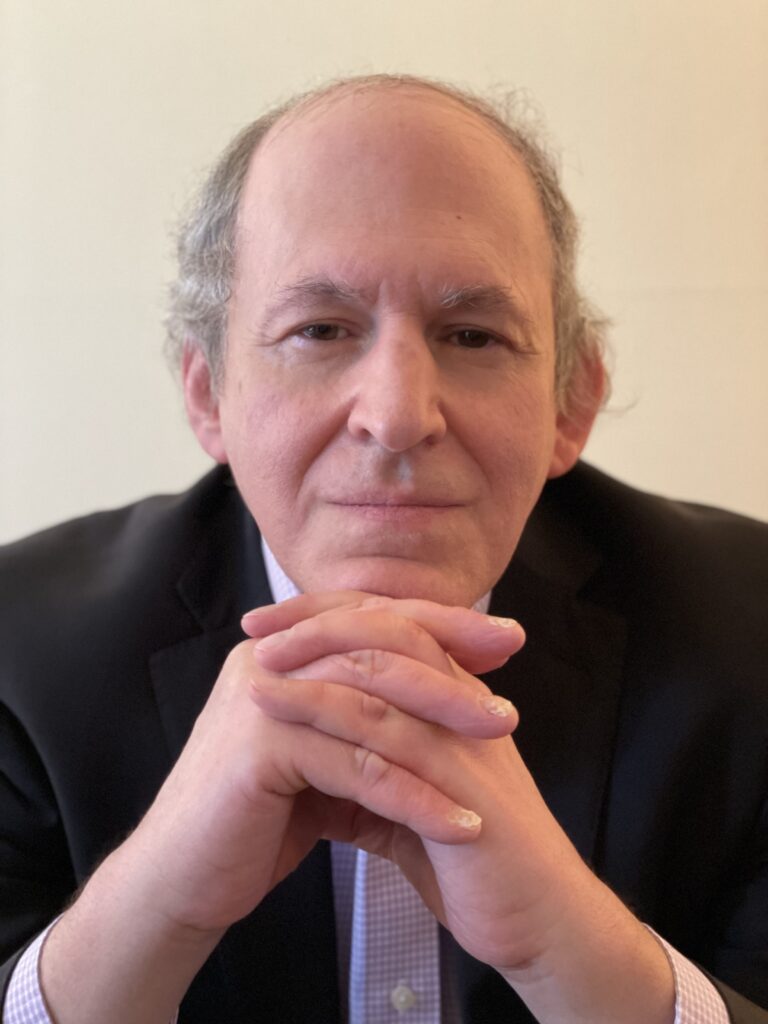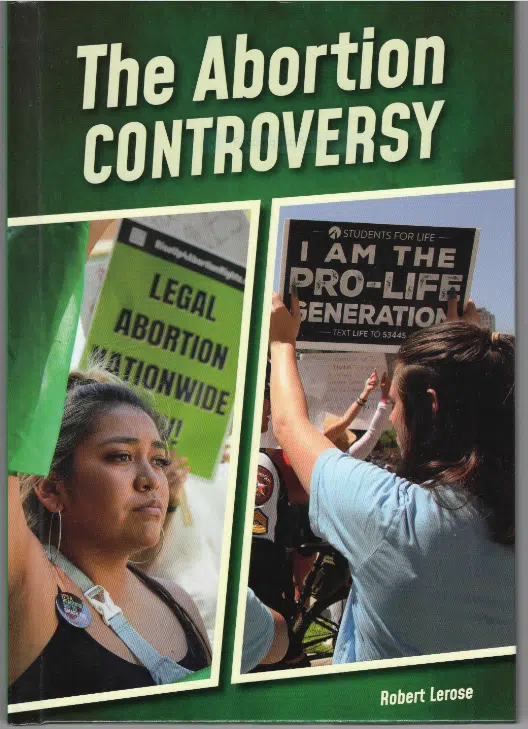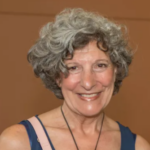Robert Lerose has been writing for as long as he can remember, and has freelanced full time since 1994. The Long Island, New York, resident considers himself a generalist who knows how to apply sound journalistic practices to any assignment he undertakes.

“I never grow tired of the process of writing,” Lerose wrote in an email interview we did shortly after he found out that his 2024 book, “The Abortion Controversy” (ReferencePoint Press), won the 2025 ASJA Book Award in the childrens/young adult category. “Shaping ideas into stories, talking to all kinds of sources, doing the research, wrestling the story to the page, and polishing the text until it shines to give the reader their money’s worth and a little bit more,” he said.
Lerose’s newest book, also for ReferencePoint Press, is “Silencing Voices: Book Bans, Cancel Culture, and Other Forms of Censorship,” published in August 2025.
Lerose was the only ASJA member to win a ASJA Book Award. ASJA Award judges said his use of sidebars, graphs, photos, charts, and maps made for a balanced visual effect and the interviews he included presented an engaging explanation of an issue with a complex history. They called the book “a valuable contribution to a young adult library (that) broadens the reader’s understanding of issues in the wider world.”
In our interview, Lerose shared about making the leap to self-employment, how his ASJA Award-winning book came to pass, being adaptable, and his favorite ASJA benefits.
How did you get started as a writer?
One of the happiest days of my life was when I discovered as a kid that I could walk to my local library by myself. It became my second home. It didn’t take long for me to make that leap from reading stories by other people to making up my own. I wrote a novel when I was 12 about a worker who was replaced by automation. Some problems, regrettably, are always with us.
When did you start freelancing and why?
I had been working for different trade newsletter and magazine publishers in their marketing departments. When I was let go from my last staff job, I had a decision to make: look for work with another employer or go out on my own. I was tired of putting my fate in the hands of the bosses and thought that I could do a better job on my own. On October 24, 1994, I became a freelance copywriter, which has led to where I am now.

How did “The Abortion Controversy” come about?
I had written four hi-lo (high interest, low reading skills) nonfiction books for a children’s publisher. They were all work-for-hire projects primarily for the school and library markets, and they gave me valuable credentials. I then sent LOIs to other educational publishers and, happily, received a warm response from ReferencePoint Press, a respected independent educational publisher of nonfiction for grades 6-12. As it turned out, they had some open titles on their list. I chose the abortion title.
You’ve won numerous awards for feature writing, web content, and profiles. What’s your secret?
I don’t think there is a secret or a magic formula. For me, it comes down to applying the fundamentals of good writing and always aspiring to be an honest craftsman.
How do you juggle journalism, books, and content writing?
For better or worse, I’m a generalist, which means I’ve learned how to adapt. Creatively, I find it immensely satisfying to switch between specialties. Pragmatically, I find it necessary to be skillful in more than one area, as the ability to make a decent living as a freelancer today is exceedingly parlous. Strategically, there are some skills that transfer easily between these specialties. While each has its own requirements, rules, guidelines, and so on, good writing is good writing, as long as you honor the requirements and expectations and objectives of each specialty.
How have you adapted your writing career to keep up with media industry changes?
By offering more value to clients and editors. For example, lately I’ve been studying the different types of short-form videos that companies are putting out, breaking them down into their audio and video components, and writing out those parts by hand in script form. I’m training myself in scriptwriting so that I can offer that specialty.
When did you join ASJA and what ASJA benefits do you appreciate the most?
I joined ASJA in 2017 because I wanted to be part of an organization where I could learn from some of the best writers in the country. To me, ASJA represented, and still does, high standards, professionalism, integrity, and mutual support. The educational opportunities are superb, whether through webinars, conferences, or the generosity of fellow members in sharing their experiences for the benefit of all.
What advice would you give writers who are interested in improving their skills?
I would suggest reading as widely as you can. Pay attention to how a given writer structured a story and how the words were chosen, but don’t stop with the printed page. Hemingway and the late, great historian David McCullough sharpened their skills by studying paintings. Perhaps most of all, be interested in people. In the end, that is who you will be writing about and writing for.
When you’re not writing, what do you do for fun?
Read, and enjoy time with family and friends. With the start of fall, I’m eager to take long walks amid the explosion of color.
**
Michelle Rafter is a Portland, Oregon, business ghostwriter and editor, and ASJA publications committee chair.
Browse Articles
Topic
Book Publishing, Craft & Writing Skills, ASJA, Freelance Life

